The Balearic coastline waste collection campaign removed a total of 27,908.48 kg of waste in 2024, with a daily average of 182.30 kg. By island, Mallorca leads with 12,716 kg of waste collected, followed by Menorca with 8,275.60 kg, Ibiza with 5,520.33 kg, and Formentera with 1,396.55 kg. This campaign, conducted by the Ministry of the Sea and Water Cycle in collaboration with PortsIB, began in May — one month earlier than usual — and concluded last September.
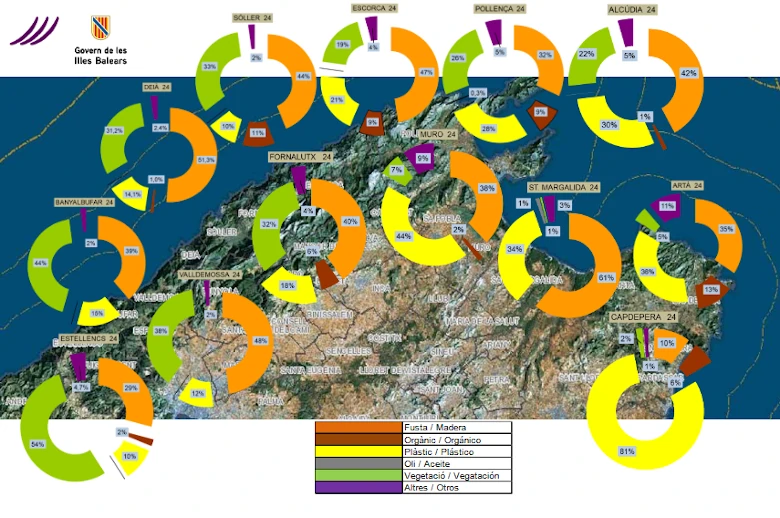
Map of waste removal from the northern coast of Mallorca. Photo: CAIB.
This initiative’s success has been achieved thanks to a fleet of 14 ‘beach’ vessels and 7 ‘coastline’ vessels, which have operated continuously for 153 days to prevent pollution and ensure the quality of waters on beaches and coves across the archipelago.
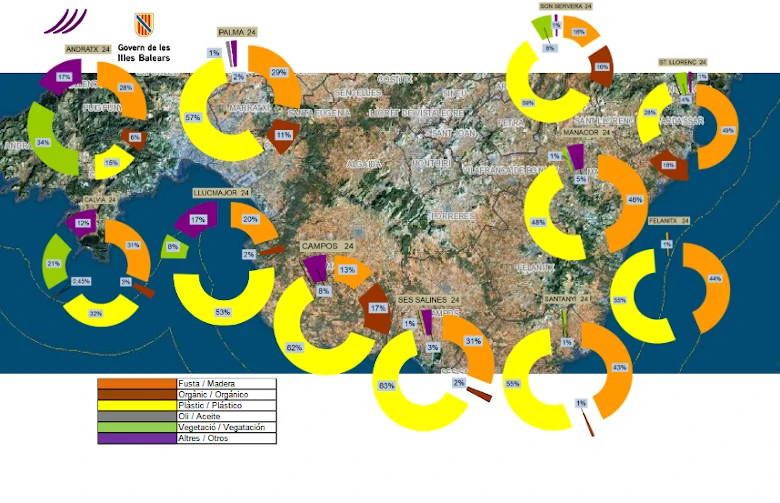
Map of waste removal from the southern coast of Mallorca. Photo: CAIB.
Data by municipality
In Mallorca, waste collection by municipality revealed that Felanitx leads with 1,825.38 kg, followed by Palma with 1,103.30 kg and Manacor with 1,093.95 kg. Alcúdia and Santanyí also recorded significant amounts, with 961.35 kg and 859.78 kg collected, respectively. In Menorca, the collection reached 2,183.65 kg in Ciutadella and 1,979.65 kg in Maó, while Es Mercadal contributed 1,720.40 kg. In Ibiza, Sant Josep removed 1,982.20 kg, and Sant Antoni collected 1,456.48 kg. Finally, Formentera contributed 1,396.55 kg to the cleaning efforts.
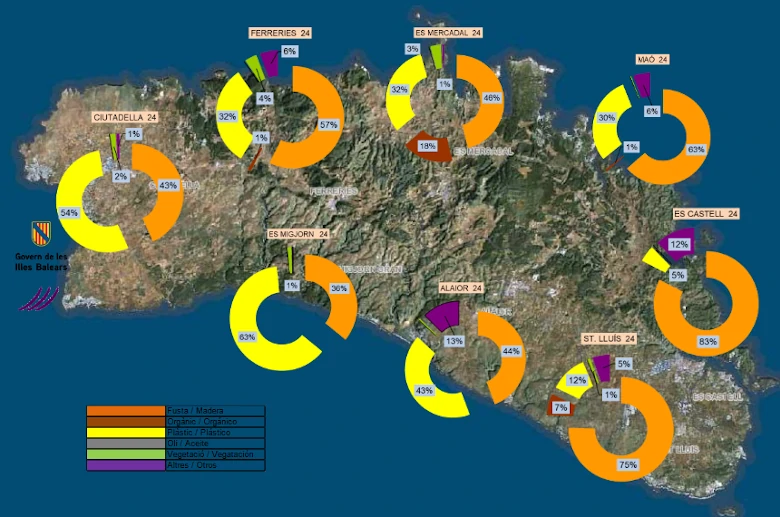 Map of waste removal from the coast of Menorca. Photo: CAIB.
Map of waste removal from the coast of Menorca. Photo: CAIB.
Types of waste removed
Among the waste removed, wood was the most notable material, representing 42.05% of the total. Plastic ranked second at 41.06%, followed by vegetation at 6.74%, other materials at 6.58%, organic matter at 3.10%, and oils at 0.47%. It should be noted that this year saw a change in the trend of collected materials, with plastic moving to second place compared to the previous year.
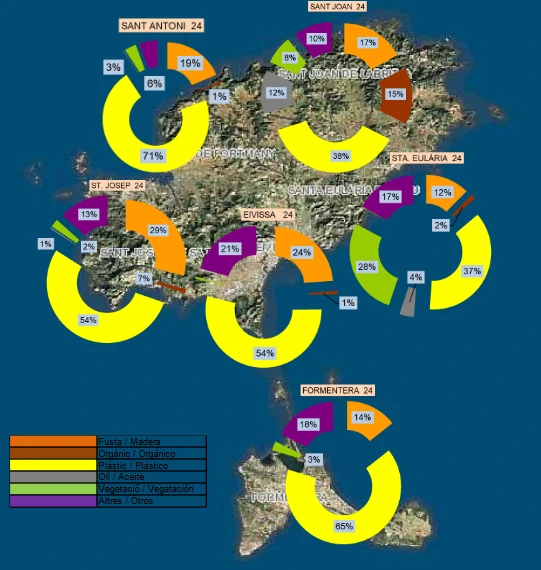 Map of waste removal from the coast of Ibiza. Photo: CAIB.
Map of waste removal from the coast of Ibiza. Photo: CAIB.
In addition to routine cleaning tasks, crews responded to 24 alerts involving waste collection in specific coves. Of these alerts, 15 came from the 112 emergency service and Maritime Rescue, while the remaining 9 were issued by institutions and individuals, often related to fuel spills or assistance requests. This collaboration with emergency services and institutions is crucial to improving sea safety.


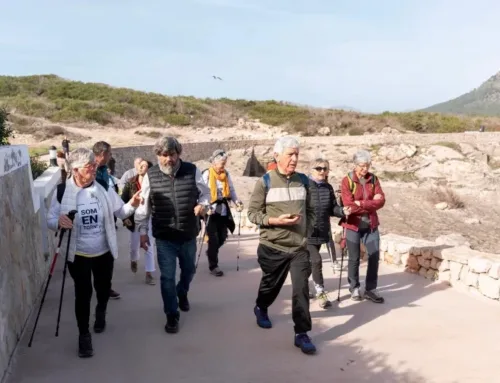
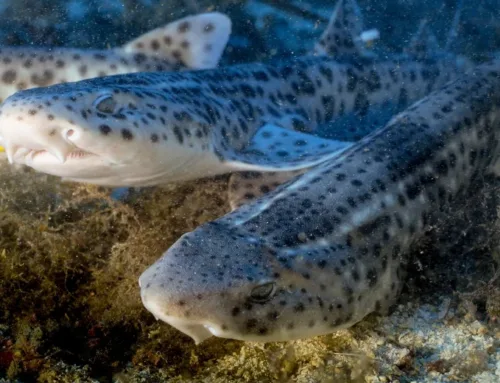

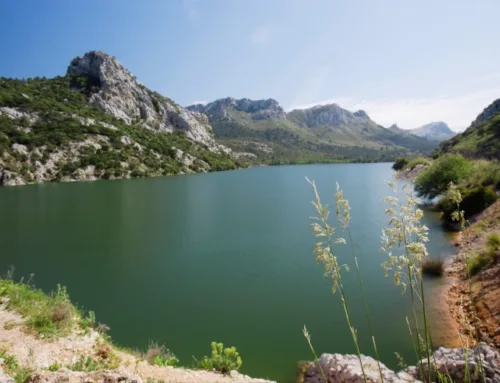

Leave A Comment